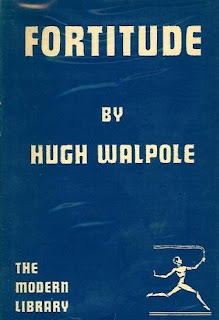 |
| © Gainsborough Pictures |
The plot is a familiar one by now, variations of it appearing in many movies and TV shows, most famously in Hitchcock's The Lady Vanishes (1938). A young woman, Vicky, and her brother Johnny, travel to late 19th century Paris to attend the Exposition Universelle. Shortly after arrival, Johnny feels ill and retires to his hotel room early. The next day, Vicky wakes up to discover that her brother is nowhere to be found, his room gone, and that no one in the hotel seems to remember him ever being there. Has she gone mad, or is there something more sinister at play?
Fans of Hitchcock, and classic mystery fiction for that matter, will probably guess the solution to the puzzle long before the credits roll. But directors Terence Fisher and Anthony Darnborough keep things moving at such a brisk pace and with such technical elegance, that even if the viewer knows the outcome, the film remains absorbing and suspenseful. Most of the weight lies on Jean Simmons' shoulder as Vicky, and she handles it with aplomb, even if aspects of her performance are a bit of their time. And Cathleen Nesbitt as Madame Hervé, the conniving hotel owner, is a terrific villain. A young Dirk Bogarde is unimpressive, not having yet blossomed into the British art-house icon he would become in the 1960s and 70s.
Co-director Anthony Darnborough mainly worked as a producer throughout his career, but Terence Fisher would later become the wizard behind some of the best British Horror films of all-time, with his groundbreaking work with the iconic Hammer Studios, and elements of his controlled, visually fluent style are present here.
Even if the ending doesn't have the impact it should after more than an hour of superbly crafted build-up, So Long At the Fair remains a terrific thriller, and with a running time of just over 80 minutes, is a fast-paced watch. Highly recommended.
Text © Ahmed Khalifa. 2021.
Ahmed Khalifa is a filmmaker and novelist. He is the writer/director of several short films and a feature, which was released on Netflix, and the author of a number of novels and short stories, including the YA horror novel, Beware The Stranger, available on Amazon. Find him on Twitter @AFKhalifa and on Facebook @Dark.Fantastic.AK·Writer








